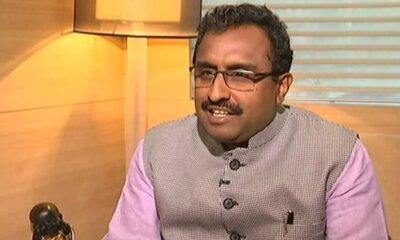
|
Getting your Trinity Audio player ready...
|
While Prime Minister Narendra Modi wowed the Chinese leadership with impressive sartorial changes, oratory and digital diplomacy, three of his trusted men played crucial roles in orchestrating the visit to be a success. Their mandate was to ensure that the boss’s first visit as prime minister would be a substantive one. When Modi sat down opposite the top tier of the Chinese government, his key men were on hand—to his right, to be precise.
By dint of his seniority and office, National Security Advisor Ajit Doval sat right next to the PM, with Foreign Secretary S Jaishankar in the next seat but both played seemingly equal and complementary roles in moulding not just the PM’s vision on China, but also to set the agenda for further Sino-Indian relation. The groundwork for the visit, especially among the around 48,000 Indians in China, had already been done by BJP General Secretary Ram Madhav, who is seen as Modi’s ambassador-at-large to NRIs and is in charge of the PM’s public events abroad with a disarming smile. Doval’s brief was mainly handling the border issues and security challenges with his impressive intelligence background as India’s superspy—he had even written a paper on Chinese intelligence. The recent border incursions, the 1962 border issue still unsettled and China investing in PoK have made his role significant in solving the issues. Jaishankar, India’s former ambassador to China, played the sounding board for a variety of issues—from border challenges to investments. Modi met top Chinese CEOs and deals worth $22 billion were signed.
Modi first encountered the suave Jaishankar in China, when he went there as Gujarat chief minister and Beijing gave him a dazzling welcome. A few years later, the PM ensured that Jaishankar was his foreign secretary of choice, curtailing Sujatha Singh’s two-year fixed tenure. While the cricket-loving Jaishankar came into the picture officially only in January, Doval, who has a reputation as a James Bond among Indian spies, did take a perceived lead in formulating the China policy, with inputs from the Ministry of External Affairs (MEA).



